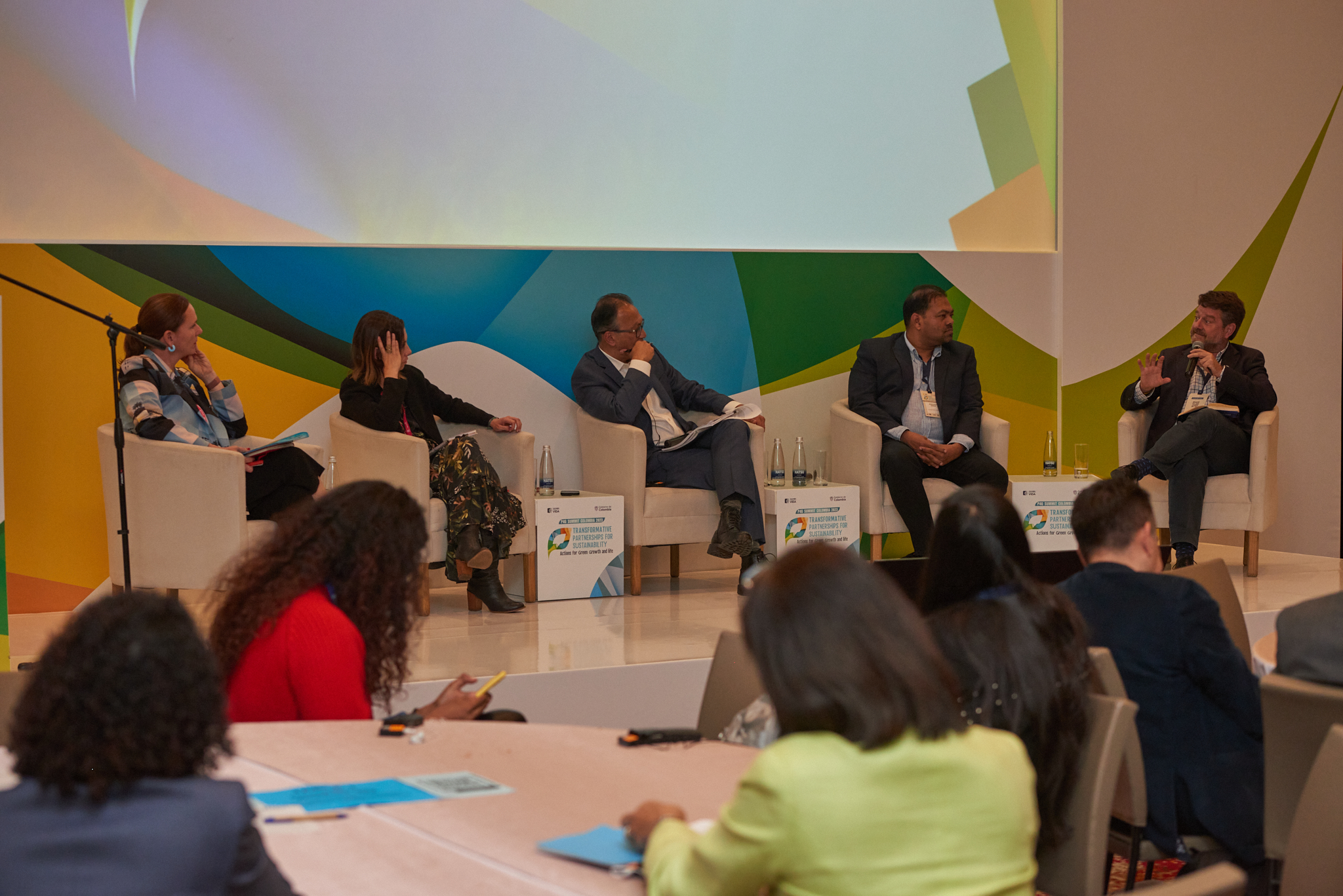Here’s How to Build Sustainable and Circular Cities

Subject
P4G Summit
Country
Publication Date
2023-10-03
Partnership
About
Cities have tremendous opportunities to lead innovation and provide funding solutions to climate challenges. But they need to enable specific levers of change that can help them meet their goals.
Speakers at the 2023 P4G Colombia Summit panel discussion on building Sustainable and Circular Cities shared their solutions and strategies to enable circularity principles and businesses to flourish.
Carolina Urrutia, Secretary of Environment of Bogota, Colombia kicked off the discussion by dismantling the myth that the public and private sector are at loggerheads with each other. Instead, she said, “people want to work together,” and what’s required is more honesty and realism about what needs to be accomplished. The wide-ranging session touched upon opportunities and solutions the panelists were excited about and the continued barriers to achieving circularity.
Claudio Orrego, Governor of Santiago de Chile Metropolitan Region highlighted the immense opportunity brought about by converging policies, where policies fit several goals simultaneously instead of taking a linear and siloed approach to developing regulations.
Cost-efficient waste collection and management systems were top of mind for Mónica Villegas, Manager, Visión 30/30 at ANDI, a private sector initiative to reduce plastic packaging in the national marketplace and achieve circular economy goals. From better collection centers for beaches to implementing programs in restaurants to collect organic waste, she described the initiative’s programs for rethinking waste management and transforming waste collection in remote regions.
Mostafiz Uddin spoke about the exciting developments in sustainable fashion from his vantage point as the founder and CEO of Bangladesh Apparel Exchange, a denim manufacturing company and initiative to promote circular fashion in Bangladesh. He recalled how in 2017, people couldn’t even pronounce circular fashion. Fast forward 6 years later, and Bangladesh is now setting examples for sustainable garment manufacturing. He called out of the work of P4G partnership “Closing the Loop on Textile Waste” that is maximizing the amount of fabric waste recycled to like-new quality fiber in Bangladesh.
Ever the pragmatist, Uddin also underscored that the private sector is driven by profit and that “there has to be a business case” for any solution to be championed.
When the conversation turned to challenges, panelists shared a number of them. Lack of knowledge was one common barrier that seemed to rise across countries. Speakers shared the huge challenge of building capacity and a general need for more awareness of any new environment program.
Orrego shared how in Santiago they request that at least 5- 10% of the budgets in environmental programs be devoted to awareness campaigns.
“Sometimes we frame policies in a bad way,” Orrego said, as he explained that they’re not asking people to give up owning cars, but rather to change the way they use their cars. He used that example to show the importance of framing policies in a way that will change public acceptance of them. He also shared the challenge of institutional accountability and not knowing who is accountable to the public.
Speakers also listed the challenges of existing tariff systems, the lack of enabling regulatory frameworks and financial support.
Ani Dasgupta, President & CEO of World Resources Institute moderated the panel and reflected on the importance of interconnected approaches that look at systems change. He also spoke about the importance of helping businesses understand the environmental change that needs to happen and asked the panelists for their top recommendations for small businesses.
The answers came fast and furious:
• Take the time to build trust and overcome implicit biases.
• Promote the need for social sustainability and acceptance of businesses by showing people that just transitions are linked to environmental justice and business innovation.
And perhaps most importantly, the people-centric message from Uddin who reminded small businesses that people are their biggest asset and asked them to, “Love your people, teach your people, educate your people and believe in your people."
